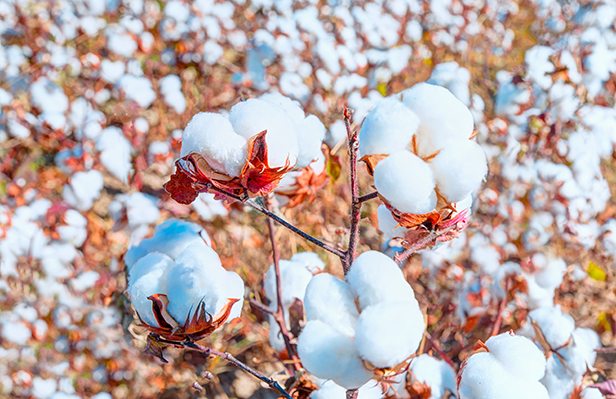Sustainability November 02, 2022
GOTS Cracks Down on Fraud at Cotton Gins
The Global Organic Textile Standard announced new requirements for certified gins to improve transparency and integrity.
The Global Organic Textile Standard (GOTS), considered the gold standard for certifying whether cotton is organic, is taking steps to root out fraud in the supply chain.

GOTS says it’s significantly raising the requirements for certified gins: First, the nonprofit organization is introducing a mandatory registry for all farms and farm groups whose certified raw material enters the GOTS system, including information on farm yields. The registry will be implemented progressively, starting in India, according to GOTS.
Raw organic cotton won’t be allowed to travel more than 500 kilometers from the farm to the certified gin. GOTS notes that the shorter distance will help to remove vulnerable spots from the supply chain and optimize the buying process.
GOTS says it plans to increase the number of unannounced audits of gins where there’s a high perception of risk.
From the Farms to Your Arms: Why Traceability Is Key for Sustainability
In this Promo for the Planet webinar, Lori Wyman, North American representative for GOTS, and other sustainability experts discuss the importance of transparency.
In an effort to strengthen integrity and traceability, ginning plants must also state the origin of raw material, including region, state and province where the farm is located on their GOTS transaction certificates. “This effectively traces material back to the field and adds another layer of accountability,” according to GOTS.
“GOTS has always been a dynamic standard, developing and expanding to be stronger and more effective all the time,” said Rahul Bhajekar, managing director. “We’re looking forward to these new rules further strengthening GOTS against potential fraud.”
The new requirements will be added to the numerous checks and balances already performed throughout the supply chain, according to the nonprofit. GOTS, which turned 20 this year, follows the entire post-harvest processing, from spinning, knitting, weaving and dyeing to manufacturing of apparel and home textiles made with certified organic fiber, including cotton and wool. The standard includes environmental and social criteria, including a ban on genetically modified organisms, hazardous chemicals and child labor. It also lays out strict wastewater treatment practices.
Earlier this year, The New York Times published an investigation reporting that a significant portion of organic cotton on the market was not actually organic. In response to that article, GOTS noted that it’s “not a farm standard and therefore does not certify cotton.” Instead, it’s a “stringent voluntary global standard” for the post-harvest processing of organic fibers.
The organization has also worked to root out fraud in the past. In October 2020, for example, GOTS announced that it had uncovered a scheme to create fake transaction certificates and websites. It banned 11 companies – representing at least 20,000 tons of organic cotton fiber – from its system.

Promo for the Planet is your destination for the latest news, biggest trends and best ideas to help build a more sustainable and socially-responsible industry.

